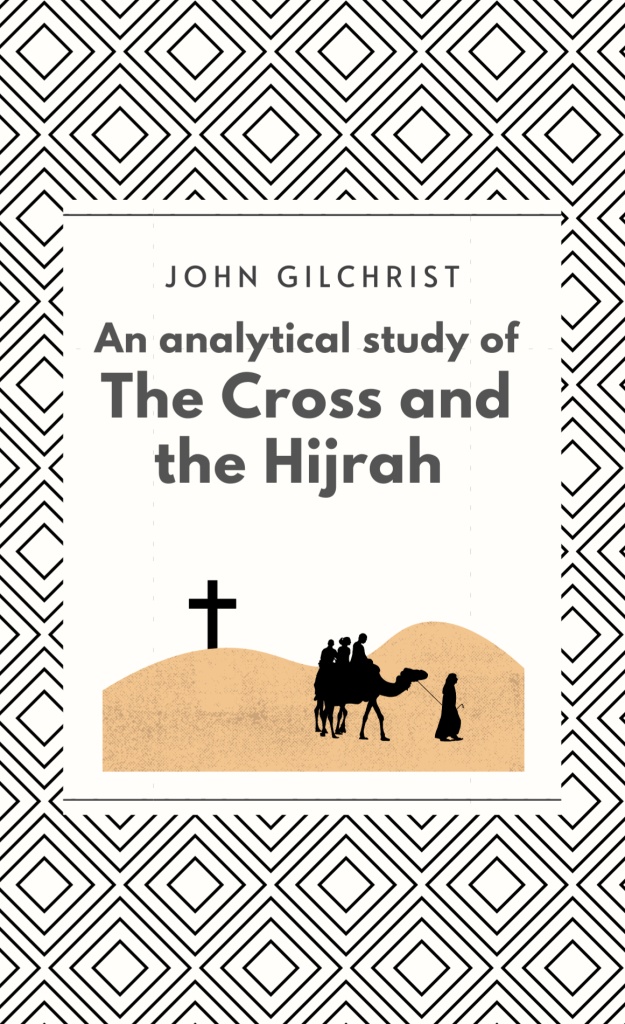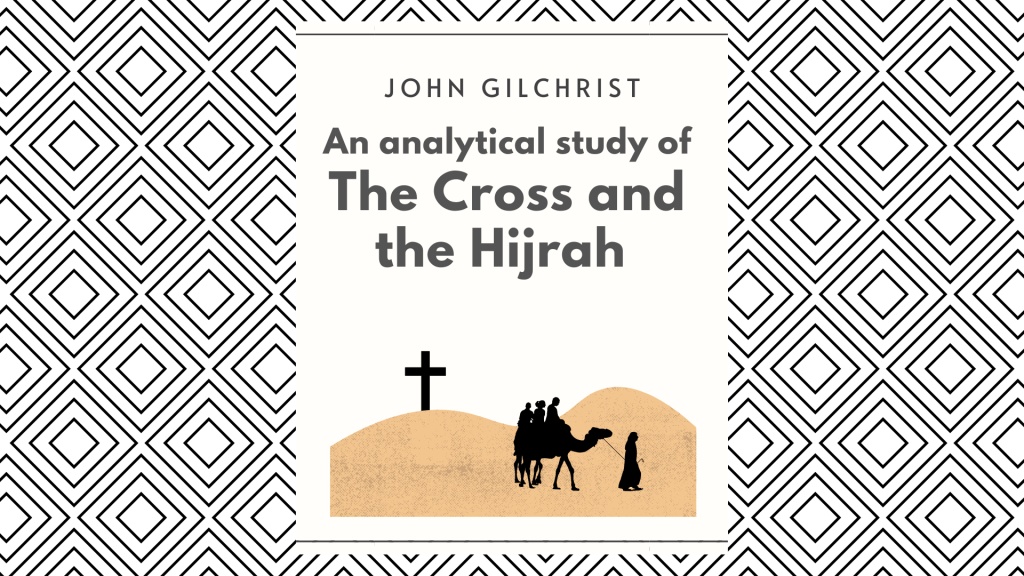The Contrasting Path Chosen by Jesus Christ
An Analytical Study of the Cross and the Hijrah


Chapters
- Introduction
- The Similarities between Jerusalem and Mecca
- The Opposition to Jesus and Muhammad
- The Ways of Escape Before both Men
- Muhammad and the Ummah at Medina
- The Contrasting Path Chosen by Jesus Christ
- The Cross - the Choice of the Saviour of the World
- The End Result: the Glorious Kingdom of God
« Ch. 5 - Muhammad and the Ummah at Medina
Jesus Christ could have chosen a similar path to that chosen by Muhammad. Not only were the Greeks prepared to welcome him but the Jews in Galilee also were only too willing to make him their king (John 6:15). The opportunity to gather a band of loyal followers around him and stage a revolt was presented to him on numerous occasions. Nevertheless, when the chance to escape from the designs of the Jews suddenly came to him as he entered Jerusalem for the last time, he resisted it and set himself positively on the road to his moment of destiny - the cross.
There were many people in Israel in those days who attempted to overthrow the Roman rule and establish themselves as the leaders of the Jewish race. The notorious Barabbas was just such a man, one who had been "thrown into prison for an insurrection started in the city and for murder" (Luke 23:19). Gamaliel, the great Jewish teacher of the law in Jerusalem, spoke of other such men who had arisen at various times in the nation's history and had endeavoured to overthrow the existing rule by forceful means:
"For before these days Theudas arose, giving himself out to be somebody, and a number of men, about four hundred, joined him; but he was slain and all who followed him were dispersed and came to nothing. After him Judas the Galilean arose in the days of the census and drew away some of the people after him; he also perished, and all who followed him were scattered". -- Acts 5:36-37.
So likewise Bar Kochba gathered a number of men around him in 130 AD and attempted to drive out the Romans as well. In each case the usual means was resorted to - the followers were armed with weaponry and sent forth to fight in the name of God against unbelievers.
Jesus was different. The Jews tried more than once to persuade him to aspire to become the ruler of the nation and enable it to resist the unbelieving Gentiles by force of arms, but he resisted the temptation every time it came his way.
At last the moment of crisis, the hour of destiny, arrived. Jesus sat together with his disciples on the Thursday night after his entry to Jerusalem the previous Sunday when the Greeks had sought to see him. He knew that the Jewish soldiers would come to arrest him that night and would look for him in the Garden of Gethsemane where he usually met with his disciples (John 18:2). Even now escape would have been easy enough for him but instead he went straight to the very place where he knew they would come for him, knowing everything that was to befall him (John 18:4). "I have come to this hour" he had boldly declared (John 12:27) and when he saw the crowd coming towards him with lanterns, torches and weapons he said:
"The hour has come; the Son of man is betrayed into the hands of sinners". -- Mark 14:41
At this very moment his disciples saw what was about to happen and they cried out, "Lord, shall we strike with the sword"? (Luke 22:49). Simon Peter immediately drew his sword and cut off the ear of one of the servants of the high priest. At the hour of crisis the followers of Jesus were possessed with the spirit of jihad. The sword was promptly unsheathed by Peter in the defence of his master in fulfilment of his pledge that he was willing to die for Jesus (Matthew 26:35).
Jesus, however, had rejected the whole idea of a hijrah or jihad. If Peter had laid down his life for Jesus it would have been a courageous act of martyrdom. But Jesus had come to lay down his life for Peter and for all his followers instead. He had come to bring new life to them and sought to open the door so that they could be transformed into true men of God and inherit eternal life. He said to Peter:
"Put your sword back into its place; for all who take the sword will perish by the sword. Do you think that I cannot appeal to my Father, and he will at once send me more than twelve legions of angels? But how then should the scriptures be fulfi]led, that it must be so?" -- Matthew 26:52-54.
To the astonishment of his disciples he promptly healed the ear of his captor! (Luke 22:51). This was the opposite of the spirit of jihad, it was the spirit of sacrificial love and grace. He did not seek to destroy his enemies by means of jihad so that he might live, he was willing to be destroyed so that even his enemies might live and be reconciled to God (Romans 5:10). In one breath he commanded his followers once for all to sheathe the sword. He had not come to set up an earthly ummah which was to be defended by force of arms, he had come to prepare his followers to become citizens of the kingdom of God, a heavenly ummah.
When Jesus was brought before Pilate the next day the Jews laid the false charge against him that he had been attempting to set himself up as a king in opposition to Caesar. Pilate duly asked him if he was the King of the Jews and why he had been handed over by his own nation. Jesus answered him:
"My kingship is not of this world; if my kingship were of this world, my servands would fight, that I might not be handed over to the Jews; but my kingship is not from the world". -- John 18:36
"My servants would fight", he said, if he had come to set up an earthly ummah, just as Muhammad's servants duly did to protect him and his community of followers. But his kingdom, as he said, was not of this world. He had come to make the kingdom of heaven accessible to men on earth and to prove the love of God by paving the way for them to become citizens of heaven. He was not interested in a hijrah to preserve his life on earth, nor in a jihad to protect an earthly community. He sought to establish a heavenly kingdom and the only way to achieve this was entirely different to the path of jihad.
The kingdom that was not of this world that Jesus came to establish was a heavenly one, a kingdom of love, grace, holiness and peace. He did not seek to subdue his enemies, he came into the world because he was endowed with heavenly love for them. He sought to save them and, to achieve this, he was willing to lay down his own life for them. He came to establish a spiritual people constituting one body over all the earth, not to be gathered into an earthly community to be protected against all other tribes and nations, but to be united in one spirit, secure and prepared for a kingdom ready to be revealed at the last time. He therefore chose the only possible path that could bring his mission to fulfilment.
Ch. 7 - The Cross - the Choice of the Saviour of the World »